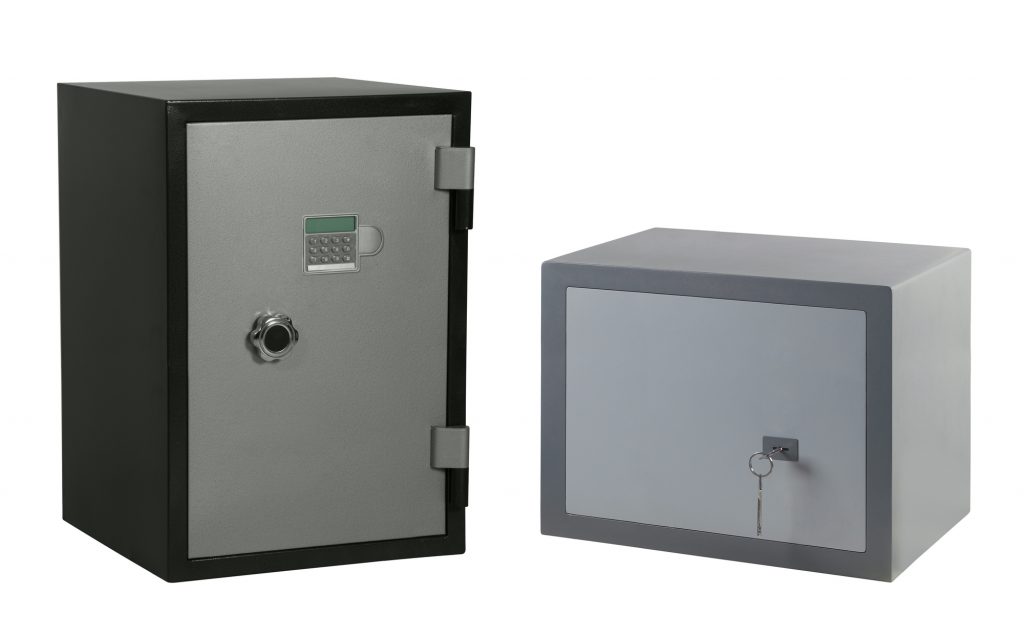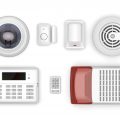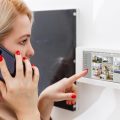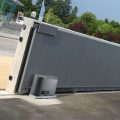Do you have valuables that you want to store safely and securely? Are you in need of a home safe? Safes come in all sorts of different sizes, with different and unique features. How can you decide which safe is the best for you?
We will take a look into different features of safes with their key advantages and disadvantages.
Which lock is best for my safe: electronic, mechanical, or fingerprint?
Mechanical Locks
Mechanical locks are devices that secure an opening by keeping a door closed until a release mechanism is activated by a key. The advantage of this type of lock is that they are resistant to humidity. They can be left for a long time even in a cold and humid environment.
However, if the safe has many users, you will have to make many copies of the key and when you don’t want someone to access the safe anymore, it can be difficult to get them back. Furthermore, more keys mean higher chances of the key being misplaced or stolen.
Electronic locks
Electric locks have the advantage that they do not require a physical key. You can have several codes and give each user a unique code.
A disadvantage to the electric lock is that the safe will need to be kept away from any wet rooms, as electronics and water don’t mix well. Also, there is a risk that you could forget the code. Another thing to keep in mind here is to make sure the safe’s batteries can be changed from the outside.
Finger-print locks
Finger-print locks, similar to electronic locks, don’t require a physical key. You can also have multiple fingerprints saved into the system.
An advantage over the electric lock system is that you will not have to remember a code, it is as easy as scanning your fingerprint. A disadvantage is that the fingerprint scanner needs to be high quality to work reliably so that unauthorised persons cannot access the safe. A good safe will fall back to a code in case of a malfunctioning fingerprint lock.
What size safe should I buy?
When you are deciding to buy a safe, it can be quite intimidating. Safes are big, heavy, and expensive. So generally, people choose a small safe just to be reassured and end up regretting it. This is a common mistake.

Small safes are usually just to protect a couple of things: some cash, some jewellery and that is it. You will find that it fills up relatively quickly. Only buy that kind of safe in a work environment where you know needs to be protected daily.
Medium safes are trickier. This is where you should consider buying a bigger safe than you first intended to. Especially if you have chosen a fire-resistant safe, which is recommended due to the benefits that it provides. Fireproof safes have to be bigger because of the thickness that holds the fire-retardant material, so don’t be afraid of buying a big fire-resistant safe.
Bigger safes are a choice that needs to be well thought out. Due to its size and weight, a big safe is made to last a long time. They are also the most expensive as they cost more to produce. Often these safes can be used for weapons of big size such as firearms. Or they can be used to store a lot of important papers that have been put into hard binders. In bigger safes, you will have the luxury to store valuables in a more tidy and organised way.
Should I choose a portable safe?
What are the benefits of a portable safe?
A portable safe is only appropriate for specific occasions where you need to store items in different places each time. However, this defeats the purpose of a safe, as a safe needs to be secured to something. Usually, bolted to a cement floor or a hard wall. That way any burglar cannot just run away with the safe. Therefore, anything advertised as a portable safe or a security box is not recommended to purchase.
What budget should I allocate to a home safe?
Do not buy a cheap safe. Buy a safe from a trusted brand, which will have spare parts available. It will last longer and you will save money, time, and hassle in the long run.
Keep in mind there will also be installation and maintenance costs involved that you will need to factor into your budget. Remember to buy a safe that will give you peace of mind.
Should I buy a fireproof home safe?
A good quality safe should not only be designed against theft but also fire. There are not many circumstances where a non-fireproof safe is recommended unless you are after a smaller safe. A fire-resistant safe is a way to go to ensure maximum safety and protection. Thicker fire-retardant material and thicker seals for the door will give better results and your valuables will suffer less from the heat.
Things to consider before buying
When researching before you purchase a safe, think about what you plan on storing inside the safe. Plan where the safe is going to be installed, how big the safe needs to be or can be to fit in the space, whilst being big enough to store the valuables you decide to put in it. Remember to plan what locking system your safe will use. Lastly, operate within a budget, safes are an expensive purchase, don’t cheap out, purchase a high-quality safe to last.










